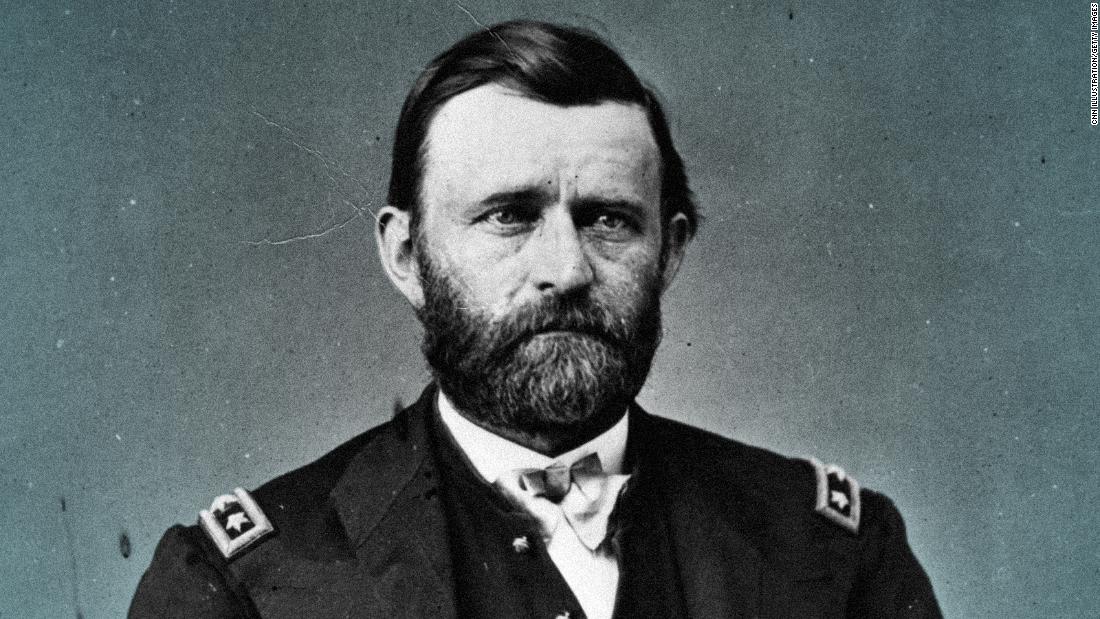But if his critics want to justify booting Trump out of office, here’s the president they should cite for historical inspiration: Ulysses S. Grant.
Grant’s pivotal moment came when the country was even more divided than it is now. He was confronting a wily opponent who had already displayed a Trumpian ability to get away with “outrageous” battlefield decisions that would have doomed any other commander.
Grant’s message
In May of 1864 Grant came up against the legendary Confederate commander, Gen. Robert E. Lee. Their armies collided in a nightmarishly dense forest in Virginia in what became known as
“The Battle of the Wilderness.” Grant wasn’t just fighting Lee’s army. He was also battling Lee’s reputation. The Southern general had already befuddled Union commanders after what one historian
called a series of “outrageous victories.” Among them was the battle of Chancellorsville, where Lee broke a cardinal rule of warfare: He divided his outnumbered army in the face of the enemy — and still won.
One night during the Battle of the Wilderness, Grant’s officers rushed into his tent in a panic, warning him what Lee might do if they attacked.
The normally unflappable Grant lost his temper.
“Oh, I am heartily tired of hearing about what Lee is going to do,” Grant said, according to acclaimed Civil War historian
Shelby Foote. “Some of you always seem to think he is suddenly going to turn a double somersault, and land in our rear and on both of our flanks at the same time. Go back to your command and try to think what we are going to do ourselves, instead of what Lee is going to do.”
Grant’s armies pressed on. In less than a year, Grant had defeated Lee and the Civil War was over.
If, as the adage goes,
“War is a mere continuation of policy by other means,” Democrats could learn this from Grant:
Think less about what Trump is going to do and focus on what you’re going to do.
Some psychologists have a name for what Grant’s subordinates experienced. They call it “
paralysis by analysis,” when people can’t act decisively because they’re so afraid to make a wrong decision. Sports fans see it all the time in athletes or teams who lose because they
overthink. Those pushing for Trump’s impeachment are also hearing a lot of nervous chatter. Some doubters warn that pursuing impeachment will only rile up Trump’s base even more by claiming
“liberal elites screw people like us.” One New York Times columnist
said the prospect of impeaching Trump “terrifies me” because an unscrupulous Trump is capable of doing virtually anything to “vent his fury or distract the audience.”
And since this is a week for Civil War analogies, Trump issued his own warning from history as well.
He
tweeted a version of a warning from an evangelical pastor who said that if Democrats remove Trump from office, “It will a cause a Civil War-like fracture” from which America will never heal.
‘Moral courage’ in war — and politics
Yet many Democrats are getting in touch with their inner Grant. They’re recommending moving quickly and decisively for impeachment.
“We should be focused and not overthink this,”
said Rep. Eric Swalwell, a California Democrat and a member of the House intelligence panel.
House Speaker Nancy Pelosi, the Democratic leader, is also rallying her troops. She was recently asked if impeachment could backfire.
“It doesn’t matter,” she
said. “We handled this with such care. It isn’t like we ran into this. He has taken us to this place. He has given us no choice. Politics has nothing to do with impeachment, in my view.”
Such an answer might have made Grant proud. In a memoir he completed just days before he died, the 18th president said he admired leaders who displayed “moral courage.”
One critic reviewing the memoir described what moral courage looked like to President Grant.
“It was made manifest in a willingness to make decisions and give orders, to take the initiative, and to overcome the fear of failure and disgrace if all did not go well, something that even physically brave men often shrink from doing,” Patrick Garrity wrote.
But Grant’s example does offer a note of caution to Pelosi and other Trump critics.
Grant beat Lee on the battlefield, but he lost the battle of optics after the war ended.
Though he served two terms as president, Grant was widely seen by historians as a failed President and a heartless, unimaginative general who only won because he
kept tossing his troops into the grinder. Grant’s memorial in Washington is rarely visited by tourists today. Victory in war, as in politics, is ephemeral.
“Grant has been forgotten. And I don’t know that it’s ever going to change that dramatically,” said Joan Waugh, a professor of history at the University of California at Los Angeles and the author of “U.S. Grant: American Hero, American Myth” in a story about Grant’s legacy.
Lee’s reputation, however, soared after the Civil War. He was praised as a brilliant tactician. He was portrayed as a
noble, humble man who reluctantly fought against the Union. Many historians, though, now
dismiss that flattering portrait.
Meanwhile, Grant is making a
comeback. Historians are
revaluating him as a general and a president. More say he was a
superior commander to Lee. His presidential memoir is considered one of the
finest autobiographies ever written by a former president.
Maybe it’s time for people pushing for Trump’s impeachment to reevaluate which historical precedents they cite as well.
Nixon’s bag of dirty tricks is instructive. Clinton offers a lesson on how impeachment can backfire.
But if you’re a Democrat who wants your party to emerge from the political wilderness of the Trump era, there’s another President you should look to: Grant is your man.





